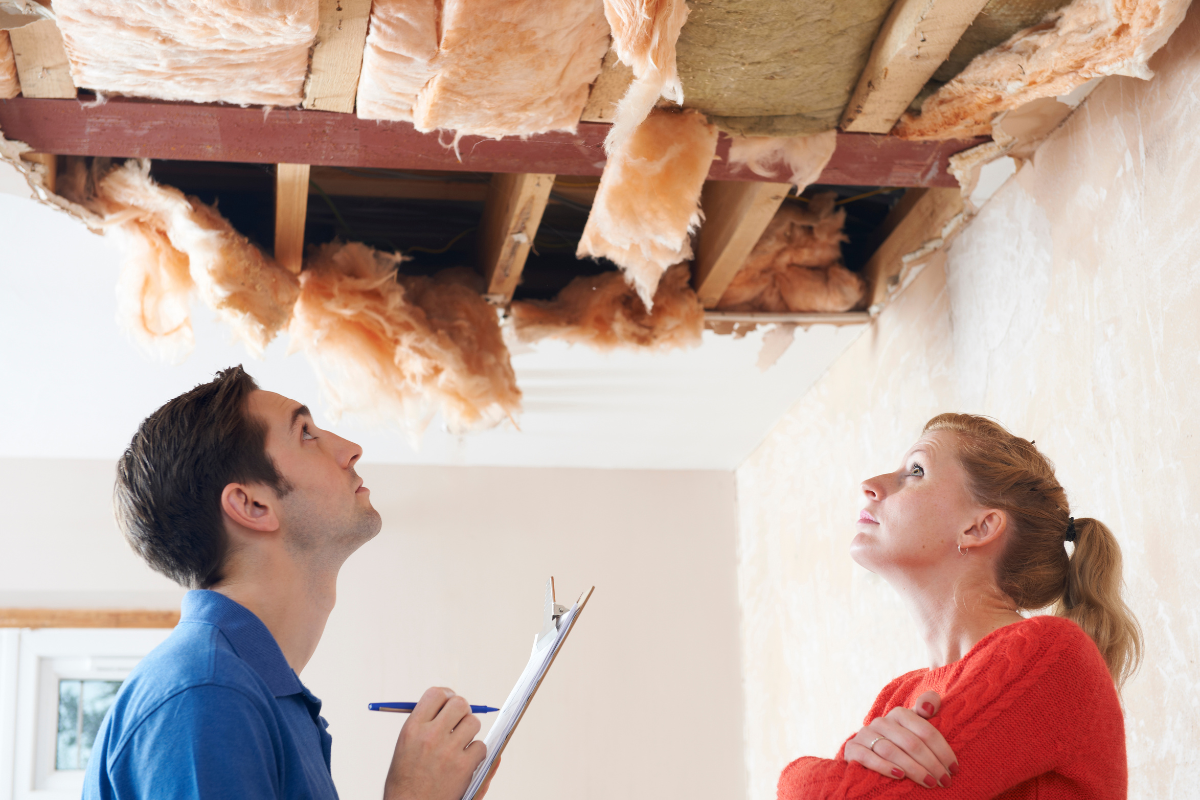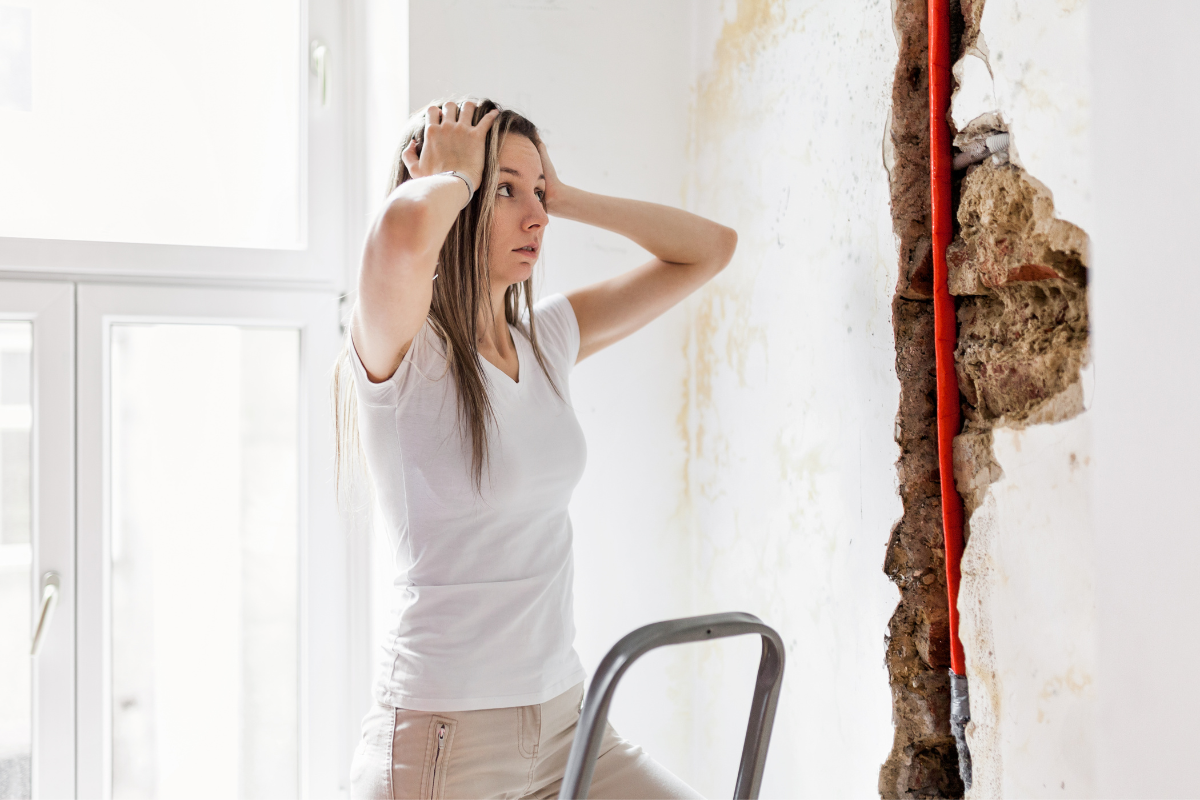
Water Damage Insurance Coverage: Top 10 Benefits & Claims
By: 911 Water Damage Experts
Water damage can be a homeowner’s worst nightmare, causing extensive property damage and financial strain.
However, having adequate water damage insurance coverage can provide peace of mind and financial protection in the event of unforeseen water-related incidents.
In this comprehensive guide, we delve into the top 10 benefits of having water damage insurance, explore the most common water damage insurance claims, and address the top 10 frequently asked questions (FAQs) about water damage insurance.
Top 10 Benefits of Having Water Damage Insurance
1. Financial Protection
Water damage insurance provides financial protection against the costs of repairing or replacing damaged property, mitigating the financial burden on homeowners.
2. Coverage for Various Causes
Water damage insurance typically covers a wide range of water-related incidents, including burst pipes, appliance leaks, sewer backups, and natural disasters like floods.
3. Peace of Mind
Knowing that you have insurance coverage in place can offer peace of mind, allowing you to focus on other priorities without worrying about the potential financial consequences of water damage.
4. Property Restoration
Water damage insurance facilitates prompt property restoration by covering the costs of water extraction, drying, repairs, and restoration services provided by professionals.
5. Mold Remediation
Mold growth is a common consequence of water damage, posing health risks and requiring specialized remediation. Water damage insurance often includes coverage for mold remediation to ensure safe and thorough cleanup.
6. Additional Living Expenses
In cases where water damage renders your home uninhabitable, water damage insurance may cover additional living expenses such as temporary accommodation, food, and transportation.
7. Liability Coverage
Water damage insurance may include liability coverage, protecting homeowners against legal claims arising from water-related incidents that cause damage to third-party property or bodily injury.
8. Emergency Services
Some water damage insurance policies offer coverage for emergency services such as emergency water extraction and temporary repairs to prevent further damage until permanent repairs can be made.
9. Value Preservation
Adequate water damage insurance coverage helps preserve the value of your property by enabling timely repairs and preventing further deterioration due to water damage.
10. Comprehensive Protection
Water damage insurance provides comprehensive protection for your home and belongings, safeguarding your investment and ensuring financial security in the face of unexpected water-related disasters.
Top 10 Water Damage Insurance Claims
1. Burst Pipes
Burst pipes are a common cause of water damage insurance claims, resulting from freezing temperatures, corrosion, or excessive water pressure.
2. Appliance Leaks
Malfunctioning appliances such as dishwashers, washing machines, and water heaters can leak water, causing damage to floors, walls, and furnishings.
3. Sewer Backups
Sewer backups occur when wastewater from sewer lines flows back into a property, often resulting in extensive damage and posing health risks due to contamination.
4. Roof Leaks
Roof leaks can lead to water intrusion into the interior of a property, causing damage to ceilings, walls, and insulation.
5. Storm and Flood Damage
Severe weather events, including heavy rainstorms and floods, can result in widespread water damage to properties, necessitating insurance claims for restoration.
6. Foundation Cracks
Cracks in the foundation of a building can allow groundwater to infiltrate, leading to basement flooding and structural damage.
7. HVAC System Malfunctions
Faulty HVAC systems can cause water leaks or condensation buildup, resulting in water damage to the property.
8. Natural Disasters
Natural disasters such as hurricanes, tornadoes, and earthquakes can cause significant water damage to homes and necessitate insurance claims for repairs and restoration.
9. Overflowing Fixtures
Overflowing sinks, toilets, and bathtubs can occur due to plumbing issues or human error, leading to water damage to floors and walls.
10. Accidental Damage
Accidental damage caused by negligence or mishaps, such as leaving a faucet running or knocking over a container of water, can result in water damage insurance claims.
Top 10 FAQs About Water Damage Insurance
1. What does water damage insurance cover?
Water damage insurance typically covers damage caused by burst pipes, appliance leaks, sewer backups, floods, and other water-related incidents, as outlined in your policy.
2. Is flood damage covered by standard homeowners insurance?
Flood damage is generally not covered by standard homeowners insurance and requires a separate flood insurance policy. However, water damage caused by burst pipes or appliance leaks may be covered.
3. How can I file a water damage insurance claim?
To file a water damage insurance claim, contact your insurance provider as soon as possible and provide documentation of the damage, including photographs, receipts, and estimates for repairs.
4. What should I do if my water damage claim is denied?
If your water damage claim is denied, review your policy coverage and the reason for the denial with your insurance provider. You may have the option to appeal the decision or seek assistance from a public adjuster.
5. Does water damage insurance cover mold remediation?
Water damage insurance may cover mold remediation if mold growth is a direct result of a covered water-related incident. However, coverage limitations and exclusions may apply.
6. Are there any exclusions to water damage insurance coverage?
Exclusions to water damage insurance coverage may vary depending on the policy. Common exclusions may include gradual water damage, maintenance-related issues, and certain types of flooding.
7. How can I prevent water damage to my property?
Preventive measures to minimize water damage include regular maintenance of plumbing systems, appliances, and roofing, installing flood barriers and sump pumps, and maintaining proper drainage around the property.
8. What factors affect the cost of water damage insurance?
Factors that may affect the cost of water damage insurance include the location and condition of your property, the coverage limits and deductibles selected, and the risk of water-related incidents in your area.
9. Should I purchase additional flood insurance?
If your property is located in a flood-prone area or designated flood zone, purchasing additional flood insurance is recommended to ensure adequate protection against flood-related damage.
10. Can I make improvements to my property to reduce the risk of water damage and lower insurance premiums?
Yes, making improvements such as installing a sump pump, upgrading plumbing systems, and enhancing drainage can reduce the risk of water damage and potentially lower insurance premiums. However, it’s essential to consult with your insurance provider to understand how these improvements may impact your coverage and premiums.
In conclusion, understanding water damage insurance coverage is crucial for homeowners to protect their property and finances against the costly consequences of water-related incidents. With the benefits of water damage insurance, common insurance claims, and frequently asked questions in mind, homeowners can make informed decisions to secure adequate coverage and effectively navigate the claims process in the event of water damage.
If you have any questions about our article, “Most Common Natural Disasters In Spring [Prevention Tips Inside]” or need water damage services contact us at 1-833-WE-DRY-IT any time 24/7/365 all the time, we’re there when you need us!
Related Posts
Fire Damage Restoration Articles
The Dos And Don’ts Of Commercial Fire Damage
Forest Fire House Damage: What To Do After Your House Is Damaged By A Forest Fire And Who to Call?
Fire prevention tips for the summer
How to clean up after a house fire
Fire damage restoration checklist
Fire damage tips: 6 hazards property owners miss
How smoke from fires can negatively affect your health
What are the most common causes of house fires?
10 helpful smoke damage cleaning tips
Mould Removal Restoration Articles
Is Bathroom Mould Dangerous? Powerful Mould Prevention Tips Inside
Dangers Of Bathroom Mould And Tips On How To Clean And Prevent It
Got Bathroom Mould? Here Are Some Must-Know Bathroom Mould Cleaning Tips
5 Signs You Have Mould Growing In Your Walls
“Can I Remove Mould Myself?” Our Mould Removal Experts Have Answers
7 Must-Know Reasons Why You Should Get A Mould Inspection Before Buying A House
Does Mould Attract Bugs? Yes And Here’s What Kind And Why
How To Remove Mould From The Attic [Mould Prevention Tips Inside]
How Rain Causes Mould Growth-Prevention Tips Included
Must-Know Tips: How To Remove Mould In Your Basement
Water Damage Restoration Articles
How to prevent home storm damage
What you can expect from a fire damage restoration company
Water damage prevention tips from the most common problems we’ve seen
Top causes of water damage in commercial buildings and how to find them
Must-know water damage tips: What to do after your house floods
What does good water damage restoration look like?
DIY water damage restoration and the hidden dangers
How to choose the right water damage company
Flast floods: What to do before, during and after a flash flood
What to do when your attic leaks?
This is why water damage is a silent home killer
Related Water Damage Services
Fire damage restoration services
Water damage restoration services
Emergency cleanup services
Mould removal services
Weather damage services


